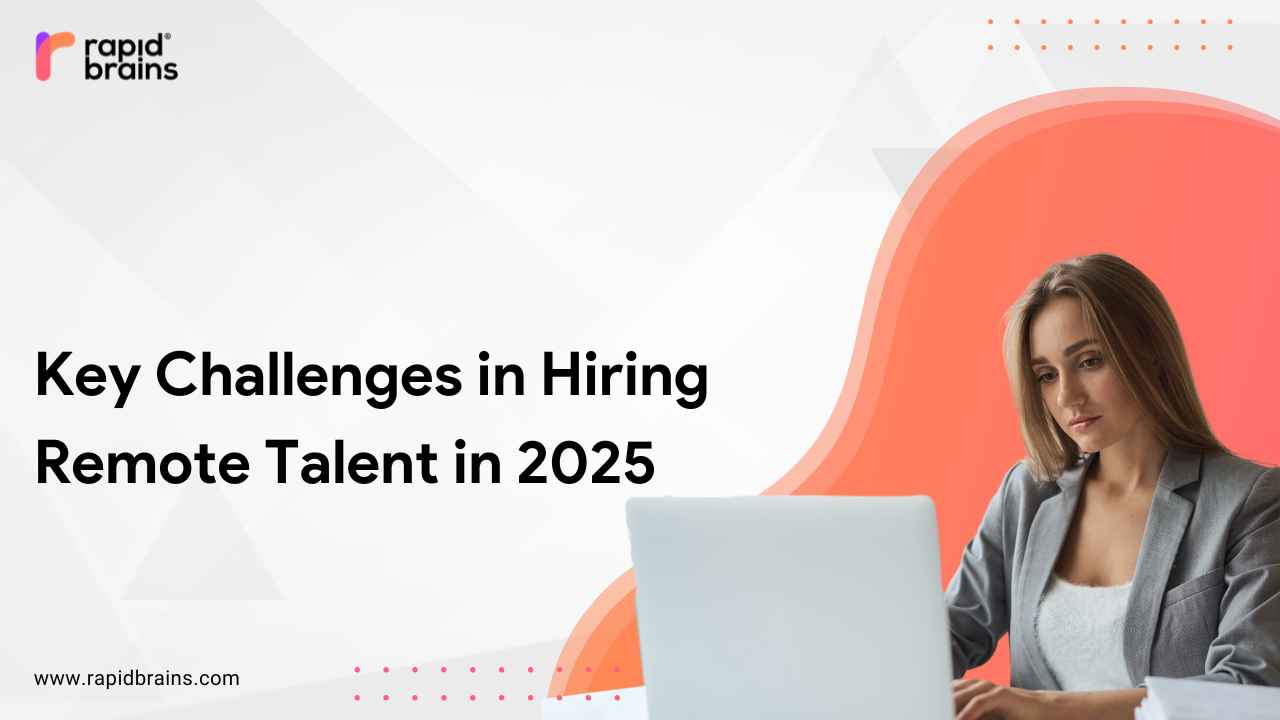
Introduction
The hiring landscape has evolved dramatically, with 2025 marking a new era of remote employment. While this shift unlocks access to a global talent pool, it also introduces unique hurdles that businesses must navigate. From talent shortages to cybersecurity concerns, overcoming these challenges is crucial to building a robust remote workforce.
Talent Scarcity and Competition
The global demand for skilled remote professionals continues to rise, intensifying competition among employers. Organizations must differentiate themselves by showcasing a strong employer brand, offering competitive salaries, and providing flexible work arrangements. Platforms like RapidBrains enable companies to hire developers quickly and efficiently, ensuring access to top-tier remote talent.
Time-Zone Management and Scheduling Difficulties
Remote teams spanning multiple time zones can struggle with scheduling conflicts, impacting workflow and collaboration. Implementing asynchronous communication tools, such as project management platforms and AI-driven scheduling assistants, minimizes disruptions. Businesses utilizing RapidBrains’ remote hiring services can access developers across time zones with ease, ensuring a seamless work process.
Ensuring Cultural and Organizational Fit
Hiring candidates who align with an organization’s values and work culture is essential. Conducting structured behavioral interviews, leveraging AI-powered personality assessments, and organizing virtual team interactions help evaluate cultural compatibility before onboarding.
Security and Compliance Concerns
Remote hiring introduces cybersecurity risks and legal complexities, especially when employing talent across different countries. Employers must enforce stringent data protection policies, utilize VPNs, and stay updated on international labor laws. RapidBrains helps businesses navigate compliance challenges by providing vetted professionals who meet security standards.
Streamlining the Recruitment Process
The efficiency of hiring processes directly impacts talent acquisition. AI-driven applicant tracking systems, automated skill assessments, and interview-as-a-service platforms can expedite recruitment while maintaining quality. Companies can leverage RapidBrains’ remote hiring platform to streamline candidate selection and reduce time-to-hire.
Building Engagement and Retention
Maintaining engagement in a remote setting is a significant challenge. Employers should implement virtual team-building activities, offer professional development opportunities, and foster a culture of recognition. Retaining top talent requires competitive compensation, work-life balance initiatives, and regular check-ins to ensure employee well-being.
Onboarding and Training Challenges
A structured onboarding program is crucial to integrating remote employees effectively. Virtual mentorship, interactive e-learning modules, and scheduled onboarding check-ins create a strong foundation for new hires. Investing in robust training programs enhances productivity and minimizes turnover.
Managing Performance and Accountability
Performance measurement in remote work requires a shift from time-based evaluations to outcome-based assessments. Implementing OKRs (Objectives and Key Results), utilizing performance-tracking software, and providing continuous feedback ensure accountability and productivity.
Conclusion
Overcoming remote hiring challenges in 2025 demands a proactive approach, leveraging technology and refined strategies. Companies must address talent shortages, streamline recruitment, ensure security compliance, and focus on engagement and retention. With expert services like RapidBrains, businesses can efficiently hire developers and build high-performing remote teams.




